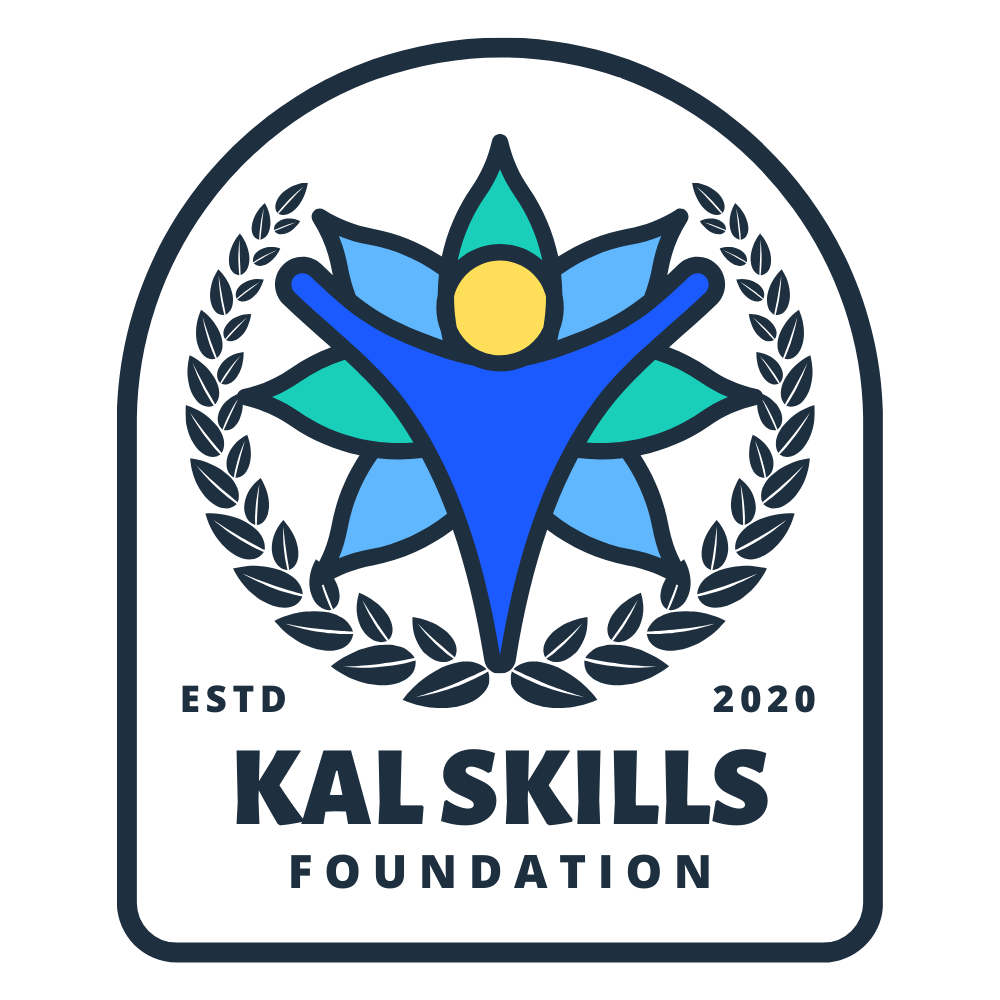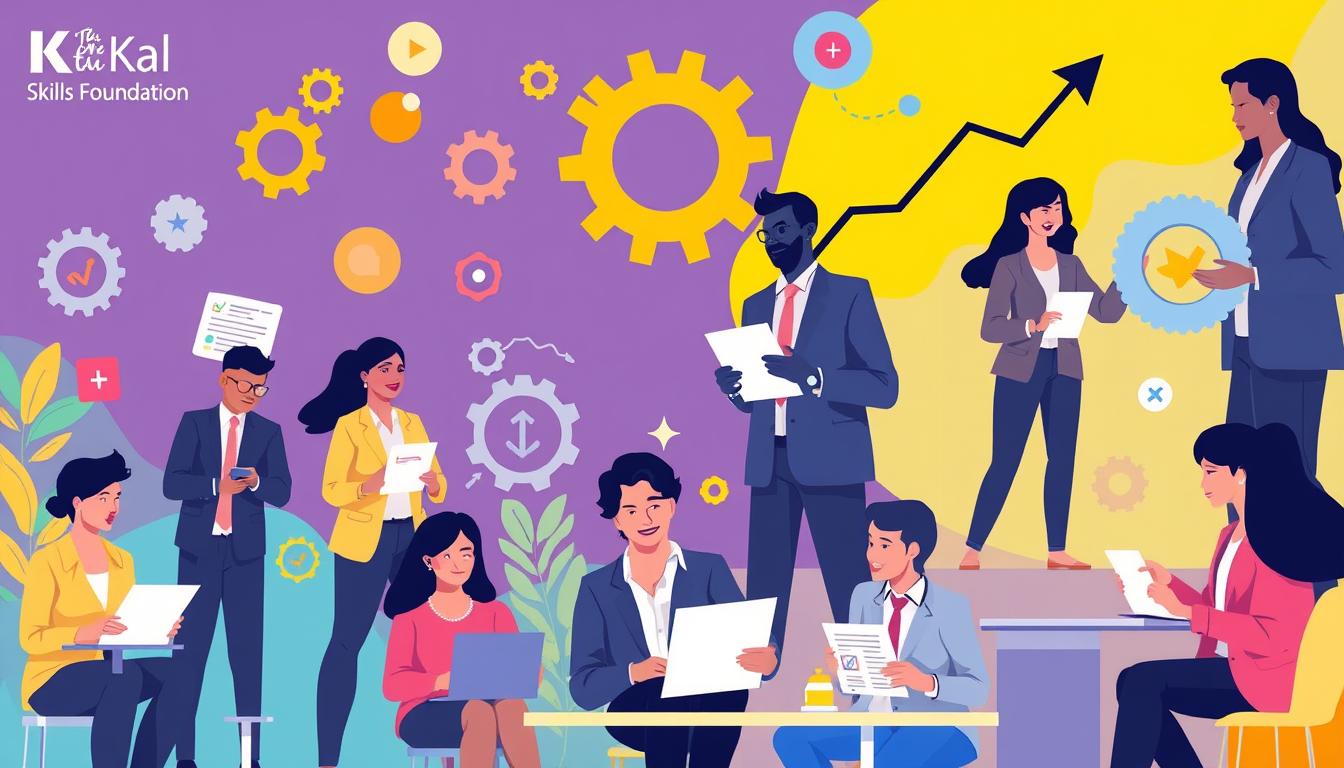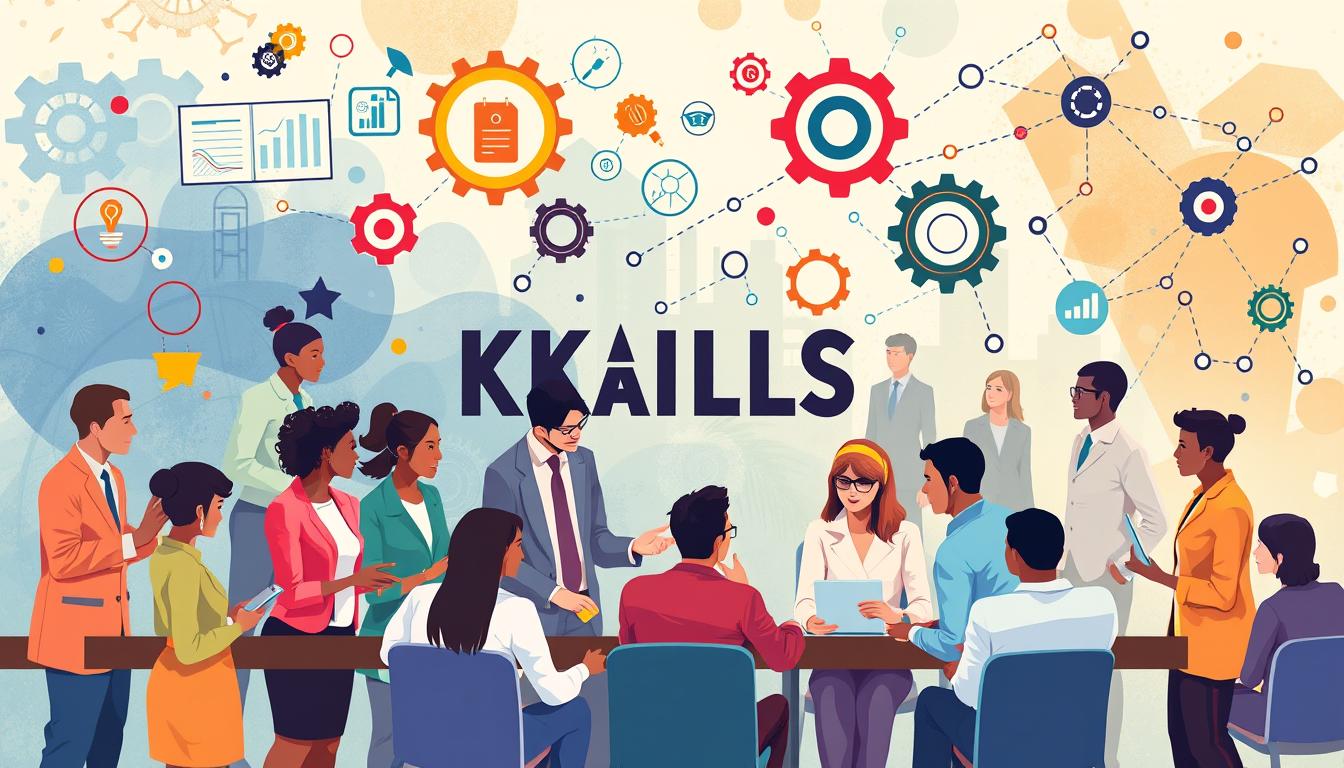Discover how employee certifications can boost your career, enhance professional skills, and meet industry standards. Learn about top certifications for job success.
Personal Development Journey: Essential Life Skills, Professional Growth, and Career Advancement
Embark on your personal development journey with essential life skills, professional growth strategies, and career advancement tips. Transform your potential today.
Continuing Professional Development: Mastering Leadership, Assessment, and Team Building Skills
Enhance your career through continuing professional development. Learn essential leadership, assessment, and team-building skills to excel in your professional journey.
Skills for All: Building Professional Certifications, People Skills, and Organizational Excellence
Discover how to develop essential skills for all aspects of your career. Learn about professional certifications, people skills, and organizational excellence.
Leadership Skills Decoded: Team Management, Professional Growth, and Organizational Success
Unlock essential leadership skills for effective team management and professional growth. Learn how to drive organizational success through strategic development.
Organizational Skills Mastery: Time Management, Leadership Development, and Team Coordination
Boost your organizational skills to excel in time management, leadership, and team coordination. Learn practical strategies for professional growth.
Courses for Careers: Essential Skills, Professional Development, and Leadership Training
Discover essential courses for careers to boost your professional development. Enhance leadership skills and advance your career path with targeted training programs.
Assessment Skills Framework: Professional Development, Performance Evaluation, and Growth Metrics
Enhance your assessment skills with our comprehensive framework. Learn professional development strategies, performance evaluation techniques, and growth metrics for success.
Unlock Your Potential: 10 Essential Personal Development Strategies
Introduction to Personal Development Personal development is a lifelong journey focused on self-improvement and the enhancement of one’s skills, qualities, and overall potential. It encompasses various activities that individuals engage in to cultivate growth, develop personal growth skills, and ultimately achieve their goals. This process plays a crucial role in enhancing both personal and professional aspects of life, leading to a more fulfilling existence. The concept of personal development is multifaceted, involving self-awareness, goal setting, resilience, and the continuous pursuit of learning. Self-awareness serves as the foundation of personal development; it requires individuals to reflect on their strengths, weaknesses, values, and beliefs. Greater self-awareness fosters a clearer understanding of oneself, enabling one to identify areas for improvement and establish realistic goals, driving progress and motivation. Goal setting is another key component in the realm of personal development. By articulating specific, measurable, attainable, relevant, and time-bound (SMART) goals, individuals can create a structured roadmap that guides them toward their aspirations. This process helps to clarify intentions and encourages individuals to stay focused and committed to their personal growth skills, facilitating long-term success. Moreover, personal development is vital within a broader societal context. It empowers individuals to navigate challenges, adapt to change, and cultivate resilience, which are essential skills in today’s fast-paced world. Investing time and effort into personal development not only benefits the individual but also contributes positively to one’s community and workplace by fostering collaboration and a culture of growth. As we delve further into strategies that can amplify personal development, it is essential to recognize the transformative potential of this journey in unlocking one’s fullest capacity. Understanding the intricacies of personal development equips individuals with the tools needed to embrace change and evolve in both personal and professional domains. Setting SMART Goals Setting effective personal development goals is vital for achieving personal growth skills and success. One popular framework for goal setting is the SMART criteria, an acronym that stands for Specific, Measurable, Achievable, Relevant, and Time-bound. By using this structured approach, individuals can clarify their objectives and create a roadmap that will guide their personal development journey. To begin, Specific goals eliminate ambiguity by stating exactly what you want to accomplish. For instance, instead of saying, “I want to get better at my job,” a specific goal would be, “I aim to complete a professional certification in my field.” This clarity directs your focus and fosters motivation, as it leaves no room for misinterpretation. Measurable goals allow individuals to track their progress. By incorporating quantifiable criteria, such as “I will read one professional development book per month,” one can assess their advancement in personal growth skills. This sense of progression is essential to maintaining motivation, as it enables individuals to celebrate small victories along the way. The Achievable aspect emphasizes setting realistic and attainable goals. While it is important to challenge oneself, setting an unattainable goal can lead to frustration and decreased motivation. A goal should stretch one’s abilities but remain within reach—this balance helps maintain a positive trajectory in personal development. Relevance ensures that the goals align with one’s broader aspirations and values. For instance, pursuing a goal that contributes to overall career advancement directly nurtures personal and professional development. Finally, Time-bound goals incorporate deadlines, instilling a sense of urgency and accountability. A deadline serves as a powerful motivator, pushing individuals to commit actively to their personal growth journey. Utilizing the SMART criteria effectively enhances goal-setting for personal development. As individuals establish clear, structured goals, they lay the groundwork for sustained personal growth skills and long-term success. Embracing a Growth Mindset To embark on a journey of personal development, it is crucial to cultivate a growth mindset. This psychological framework stands in contrast to a fixed mindset, where individuals believe their abilities and intelligence are static and unchangeable. A growth mindset, on the other hand, embodies the belief that personal growth skills can be developed through dedication and hard work. This fundamental shift in perspective plays a pivotal role in fostering resilience, facilitating continuous learning, and ultimately driving higher achievement. Individuals with a growth mindset view challenges not as obstacles, but as opportunities to expand their capabilities. They are more inclined to take risks and embrace new experiences, understanding that failure is a part of the learning process. This outlook enhances their adaptability, allowing them to respond positively to setbacks while leveraging each experience as a stepping stone towards improvement. Personal growth becomes an intrinsic part of their journey, empowering them to seek knowledge and skills that further contribute to their development. The difference between these two mindsets is also reflected in how individuals react to criticism and feedback. Those with a growth mindset perceive constructive criticism as valuable input for their personal development, whereas those with a fixed mindset may take it as a personal attack. This openness to feedback creates a constructive environment conducive to learning and growth in various aspects of life. In summary, embracing a growth mindset is vital for anyone striving to unlock their potential through personal development. By shifting focus from limitations to possibilities, individuals can harness their personal growth skills effectively and embark on a lifelong journey of learning and self-improvement. Building Self-Discipline Self-discipline is a cornerstone of personal development, providing individuals with the ability to control their actions and reactions in pursuit of long-term goals. It is the capacity to remain focused on tasks and commitments, especially when faced with distractions or obstacles. Developing self-discipline is crucial for fostering personal growth skills as it allows individuals to push through challenges and stay committed to their objectives. One of the first steps in cultivating self-discipline is setting clear, achievable goals. By defining specific objectives, individuals can create a roadmap that outlines the steps needed to reach their targets. This clarity not only helps maintain focus but also allows for tracking progress, which is vital for building motivation. Breaking down larger goals into smaller, manageable tasks can further enhance motivation, making it easier to take the first step and build
Accelerate Your Career: The Ultimate Guide to Professional Development
Understanding Professional Development Professional development encompasses a series of educational and training opportunities that enhance an individual’s skills, knowledge, and competencies relevant to their career. In today’s fast-paced work environment, where technological advancements and industry standards are continually evolving, engaging in continuous professional development is increasingly important. This ongoing process not only helps professionals maintain their relevance in their respective fields but also prepares them for new challenges and opportunities that arise throughout their careers. The significance of professional development can be observed in various aspects of one’s career. Firstly, it facilitates career advancement by equipping individuals with essential skills that enhance their employability. Professionals who actively engage in ongoing skills enhancement are often more competitive in the job market. This proactive approach to career growth results in greater job satisfaction as it fosters a sense of achievement and personal growth. Workers who invest time in their development are more likely to find their roles fulfilling and rewarding, thus contributing positively to employee retention rates within organizations. Moreover, the alignment of continuous learning with professional growth trajectories plays a crucial role in an individual’s success. Each phase of a career is marked by different demands and expectations, and professional development allows individuals to adapt to these transitions effectively. By embracing lifelong learning, professionals can not only meet the evolving requirements of their job roles but also explore new areas of interest, ultimately broadening their career horizons. In conclusion, understanding professional development is vital for fostering a successful career. Continuous professional development not only empowers individuals to enhance their skills and knowledge but also significantly contributes to increased job satisfaction and overall performance in the workplace. Setting Career Goals Establishing clear career goals is a fundamental step in the journey of professional development. By defining these goals, individuals can not only gain direction in their careers but also create a framework for measuring progress. To maximize the effectiveness of career goals, it is essential to ensure they are SMART: Specific, Measurable, Achievable, Relevant, and Time-bound. When setting specific goals, it is important to articulate them clearly. For instance, rather than stating a vague desire to “advance in my career,” one might specify, “I aim to secure a managerial position within three years.” Measurable goals allow for tracking progress; this could involve setting milestones, such as completing a certification or achieving a certain performance review rating. Achievable goals necessitate a realistic assessment of your skills and resources. While ambition is essential in professional development, they should remain within reach to maintain motivation. Relevance ties your goals to your overall career trajectory. Consider how achieving a particular goal aligns with your long-term professional aspirations. Lastly, time-bound goals specify deadlines, which foster a sense of urgency and commitment. For example, striving to improve networking skills over the next six months can provide a clear timeline for evaluating progress. To identify personal and professional aspirations, self-assessment is a vital initial step. This may involve reflecting on past experiences, soliciting feedback from peers, and conducting a skills inventory. Once individuals have a clearer picture of their goals and aspirations, they can develop a roadmap outlining actionable steps needed to achieve these milestones. This roadmap can serve as a guiding document, allowing for adjustments as needed, while keeping the focus on continued professional development. Identifying Skill Gaps Identifying skill gaps is a critical step in the process of professional development. To remain competitive in today’s dynamic job market, it is essential for professionals to evaluate their current skill set against the evolving requirements of their respective industries. Conducting a skills inventory can be an effective method to assess one’s competencies comprehensively. This may involve listing all skills and qualifications, sorting them based on proficiency, and marking those that align with current industry standards. One practical approach to understanding skill gaps is to utilize various online tools and assessments designed for this purpose. Platforms such as LinkedIn Learning, Coursera, and Skillshare offer self-assessment quizzes that can highlight areas needing improvement. Additionally, various professional organizations provide resources and frameworks to benchmark skills against industry standards, thus facilitating a clearer picture of where an individual stands. Another valuable method for identifying skill gaps is to seek constructive feedback from peers and mentors. Engaging in discussions regarding performance can yield insights that might not be apparent when self-assessing. Mentorship opportunities, whether formal or informal, can offer personalized guidance and highlight specific areas for enhancement. These conversations can serve as powerful motivators for one’s continuing professional development by creating a supportive environment for honest evaluations. Furthermore, attending workshops, seminars, and networking events can also provide opportunities to identify industry trends and expectations regarding required skills. By actively participating in these professional environments, individuals can gain insights into the skills that are increasingly sought after by employers. Therefore, through systematic evaluation and community interactions, professionals can effectively identify their skill gaps and take proactive steps toward bridging them. Creating a Professional Development Plan Establishing a robust professional development plan is essential for anyone looking to advance their career. Such a plan serves as a blueprint, guiding individuals through their career aspirations and ensuring that they stay focused on their goals. The first step in crafting an effective professional development plan is goal-setting. Identify specific, measurable, attainable, relevant, and time-bound (SMART) objectives that align with both short-term and long-term career aspirations. This clarity provides a strong foundation to build upon and helps to maintain motivation. After setting goals, it is crucial to determine a timeline for achieving them. Timelines create urgency and structure, allowing for the prioritization of tasks and resource allocation. They should be realistic and adjustable, reflecting both personal aspirations and external opportunities. This flexibility can be particularly vital in today’s dynamic professional landscape, where changes occur rapidly and unexpected challenges may arise. Next, resources that are necessary for upskilling must be identified. These may include formal education, workshops, online courses, mentorships, or networking opportunities. Utilizing various resources can enhance the learning process, ensuring that individuals gain diverse perspectives and knowledge











